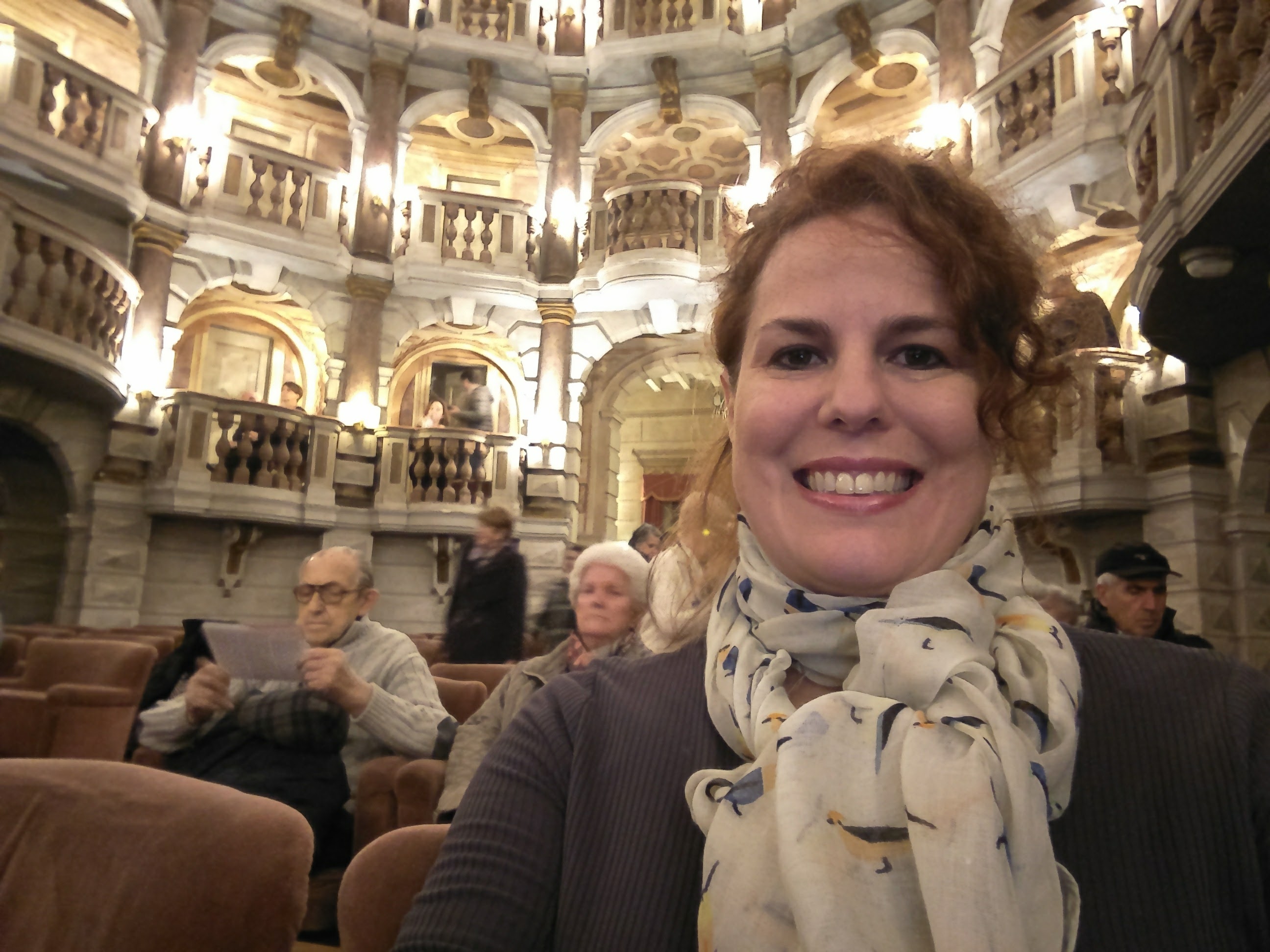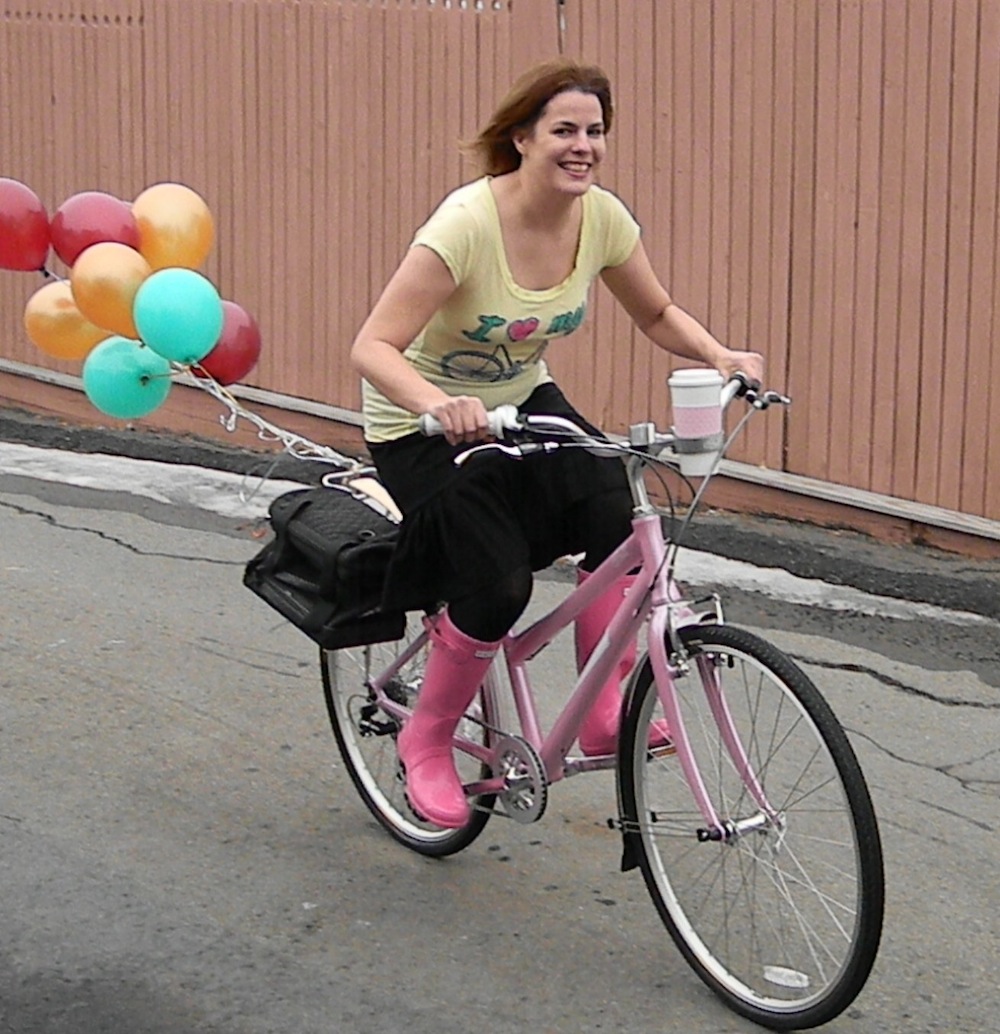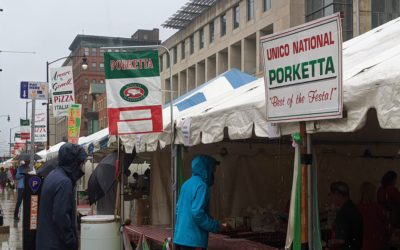There are days of loneliness with solo travel. And if you’ve left to escape something, its specter will inevitably appear with a menacing grin, and breathe down your neck, as a chilly November fog rolls in over the beautiful northern, Italian city you are walking through. And despite the beauty around you and your freedom, your gaze begins to focus only on the many shops being closed because it is Sunday morning, the struggle you had wrestling a bike from the bike share station only to find the seat broken and how it started to rain anyway and now your gloveless hands are freezing and red and your throat feel sore, so you stop for hot chocolate which you spill…On and one these small inconveniences start to lead you down other paths from other places. Suddenly you are not here but in a dark maze.
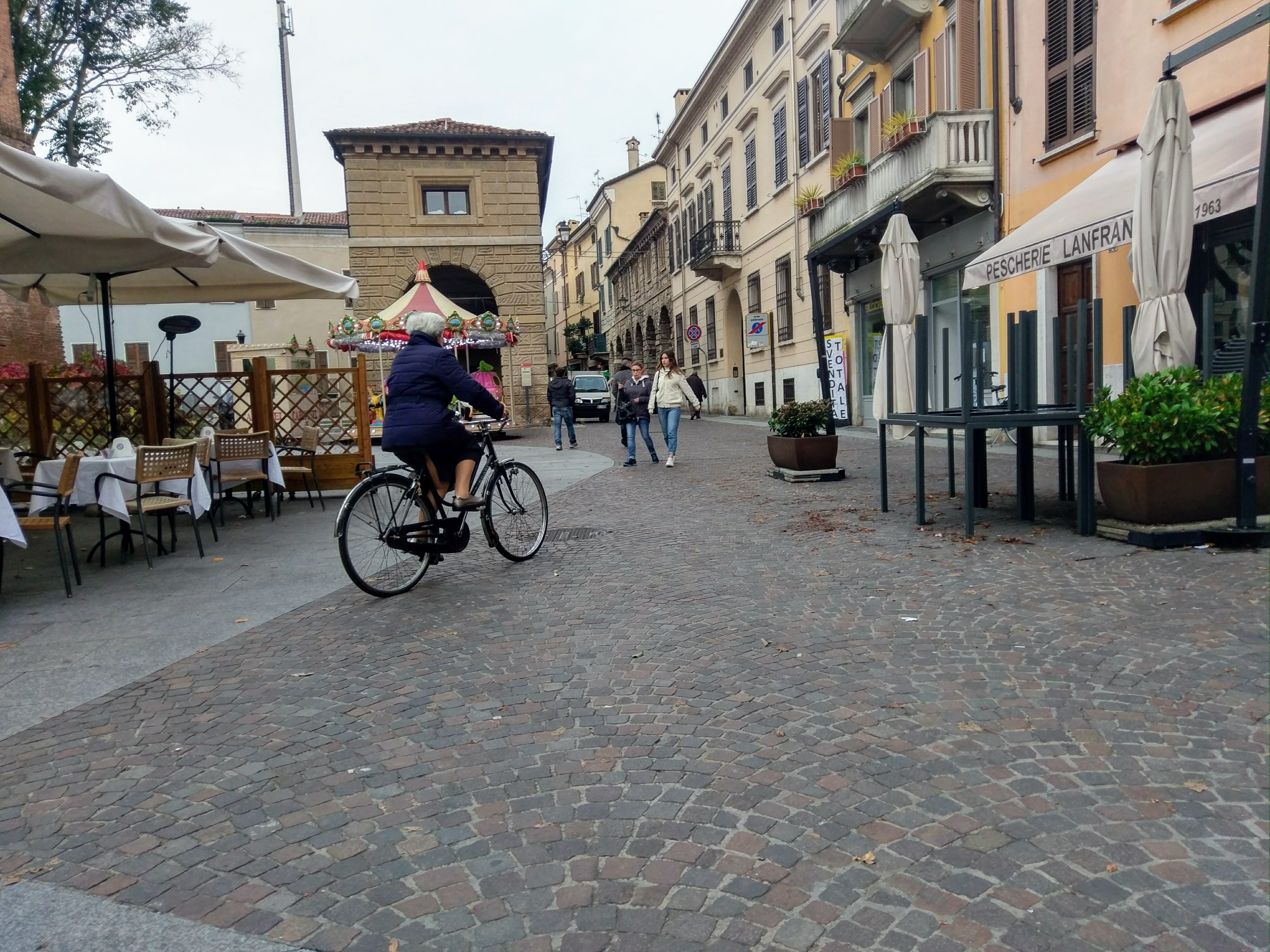
Many people use bicycles for transportation in Mantua, Italy. Here a woman rolls by early in the morning on Via Pescheria. Mantua is surrounded by lakes and is full of Medieval and Renaissance art and architecture.
I found myself in this state one day in Mantua, an amazing gem of a city two hours from Milan in the East Lombardy region of Italy. Surrounded by beautiful artificial lakes built in the 12th century, it is full of Medieval and Renaissance art, and offers delicious, unique culinary traditions. I was there visiting friends and enjoying all the city had to offer, but on this day I could not shake my gloom.
I was tempted to skip the Chopin Concert I had planned to see performed by Marcella Crudeli, considered by international critics to be one of the most eminent Italian concert performers. The concert was to be at Teatro Bibiena also known as the Teatro Scientifico as it was constructed for the Royal Virgilian Academy of Science and Arts. (Mantua is the birthplace of the Roman poet Virgil) A 14 year old Mozart had played for the opening night of the theater in January of 1770.
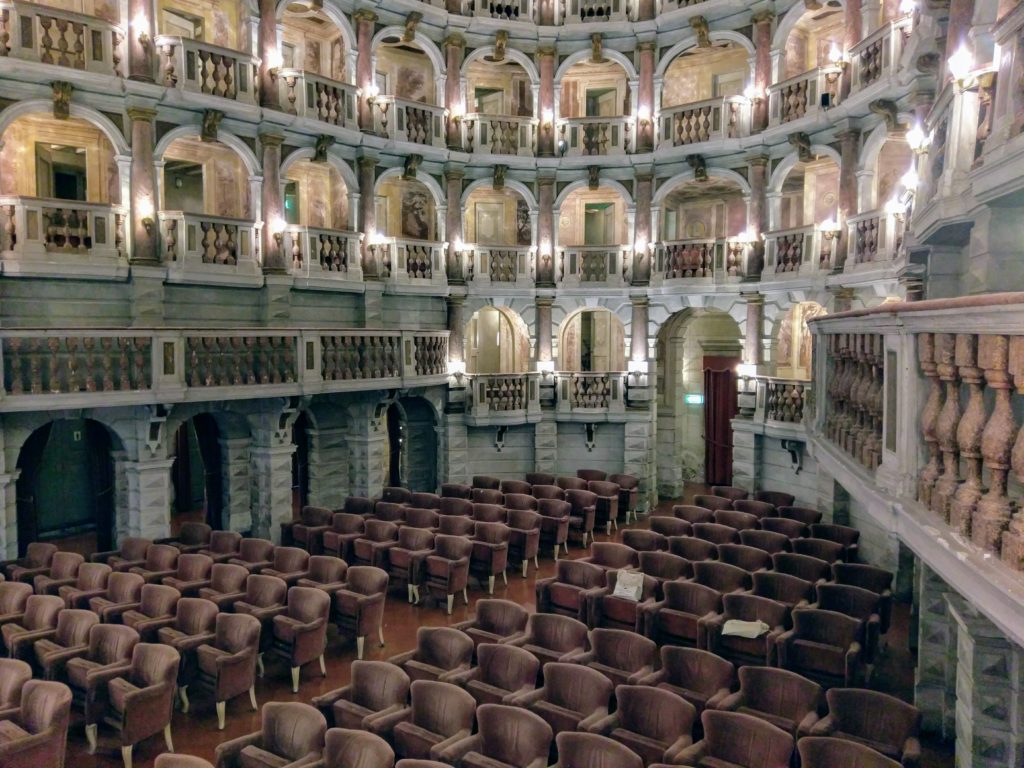
Teatro Bibiena, also known as Teatro Scientifico was designed by Antonio Bibiena in late Baroque and Rocco styles and completed in 1769.
I convinced myself that not to attend would truly be a missed opportunity. I slipped a dress over my depression and headed out into the rainy afternoon.
Stepping into Theatro Bibiena alone is a balm for a wearied soul. Built by architect Antonio Bibiena, it is a gorgeous bell shaped space I can only describe it as cozily elegant with stacked stucco balconies that rise up even behind the stage, accented by red velvet and soft lighting.
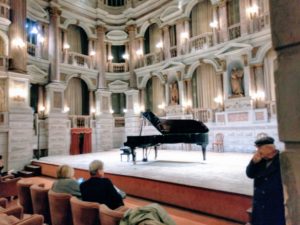
Teatro Bibiena was built as a theater to be seen in and even has theater boxes behind the stage. A 14 year old Mozart played for the theater’s opening in January of 1770.
Ms. Crudeli walked on stage wearing a dress with huge colorful sequins. When the stage lights landed on them they produced fire fly flickers of fuchsia and green. She dove into Chopin’s Variazioni brillanti Op. 12. Although 78 years old, I am convinced that Ms. Crudeli is outside age or time. She is simply energy. And passion. And joy. She seemed more spirit than flesh, and yet her immense physicality was central to the performance. Her fast and furious fingers speeding up and slowing down, the swaying and dipping of her body, the genuine smiled she greeted the audience with. I was mesmerized.
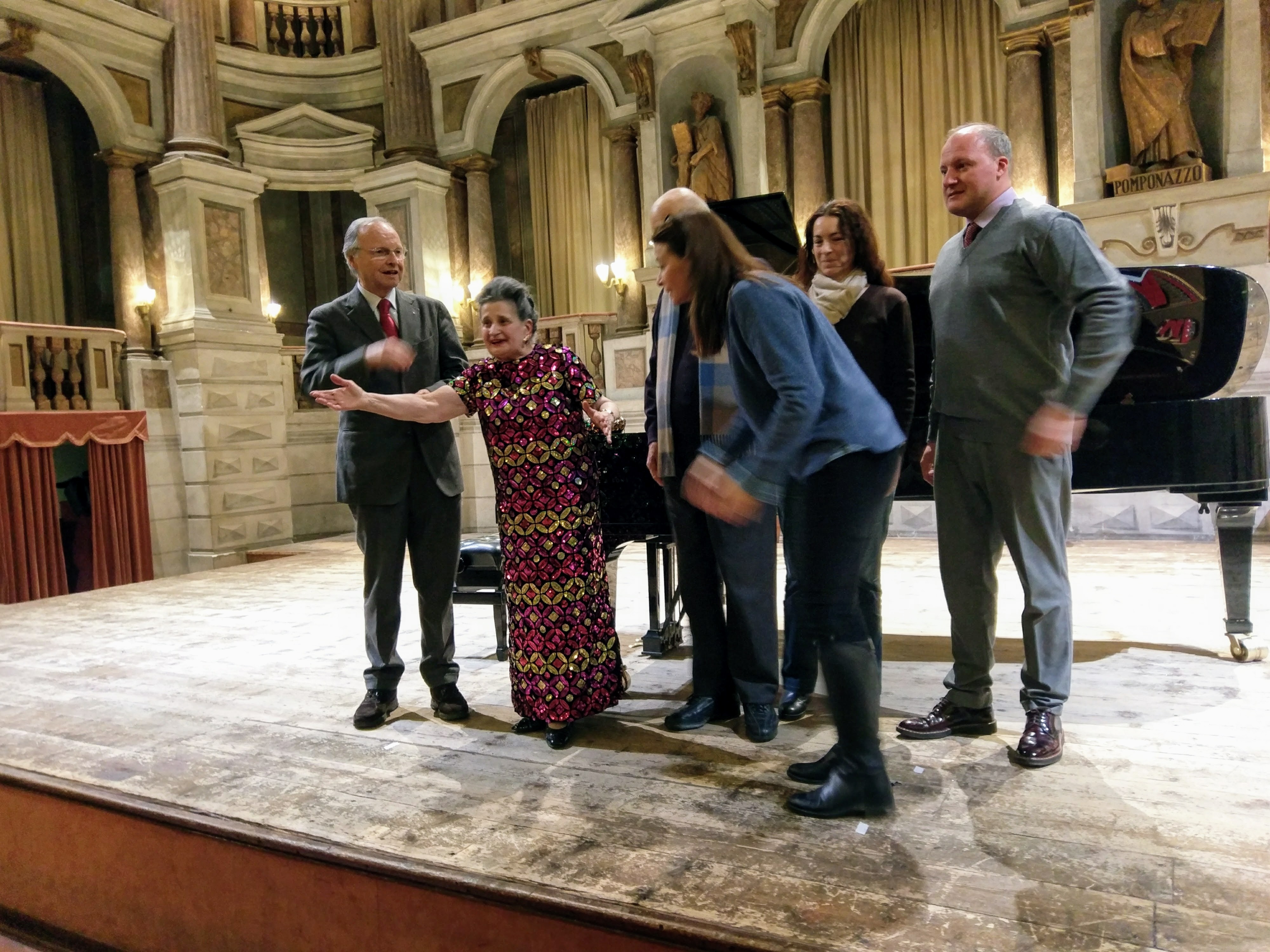
Renowned Italian concert pianist, Marcella Crudeli, prepares for a group photo after the concert on November 12, 2017 at Teatro Bibiena. I liked this photo because it captures her energy and passion.
I loved the moodiness of Chopin’s music brought to life by the virtuosity of this woman. The overflowing expressiveness. Light and delicate one moment and then jumping to darker tones. Leading us on a journey of our own romantic yearnings. As Ms. Crudeli played piece after piece with the same love and attention, I felt the gloom disappear replaced by a gratitude and wonder at all this world has to offer. The sorrow and the joy. This is what gives our lives depth.
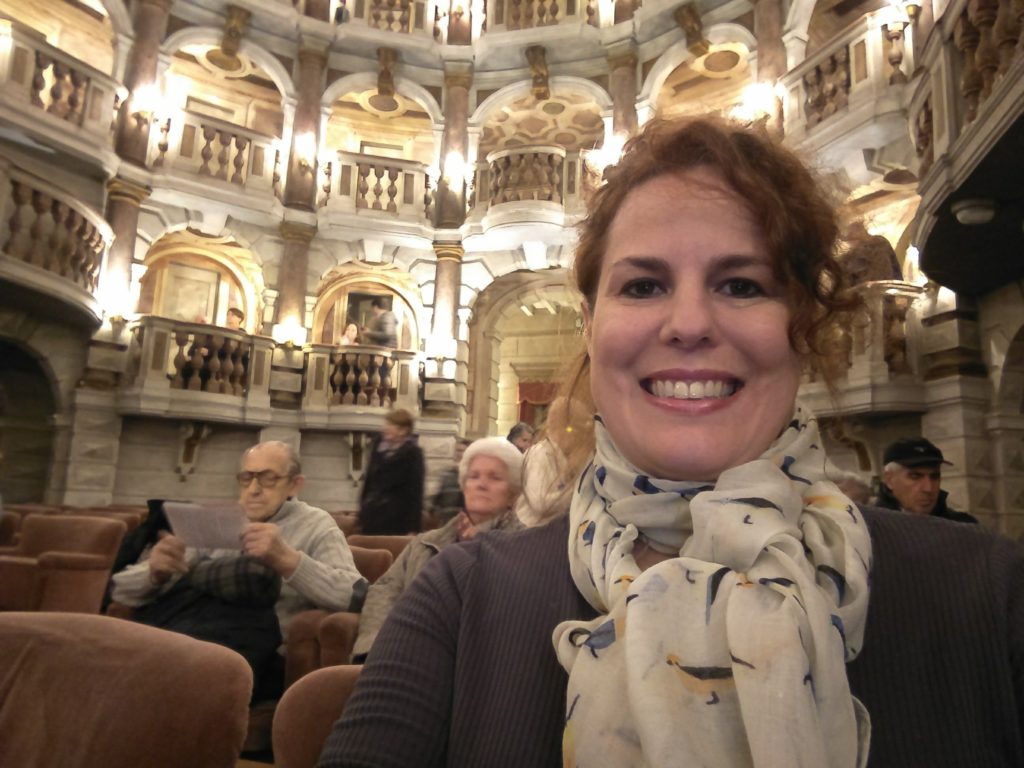
One can’t help but smile in the gorgeous bell shaped Teatro Bibiena with its stacked boxes, red velvet and soft lights.
As an arts administrator. I talk constantly about art. I have all the statistics on the economic development, quality of life, health benefits and brain development aspects of art. I assess artistic programs, I conduct workshops and create art programs. But I wondered at times if all these elevator speeches, reports, opening remarks at events, meetings had stunted my own personal experience of art. Had I distanced myself from that which is ineffable about art?

A sculpture of the Roman poet Virgil at the Teatro Bibiena in Mantua, Italy. Virgil was born in Mantua.
I almost felt at times I could predict the experience I would have. Had I reached a point where I could not walk into something it naked of cultural expectations or predictions?
What great art does is lead us away from our routines, identities and false certainties, even the comfortable certainty of our own pain, and allows us to rest without having to have an answer or solution. There is nothing we need to do but let the music in.

